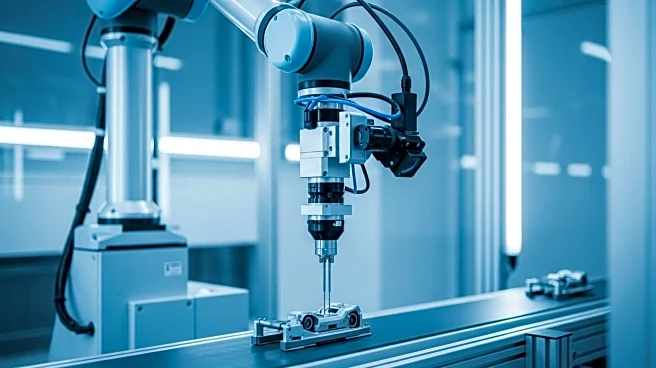What is the story about?
What's Happening?
Kistler is set to present its advanced AI-supported automated quality control system for injection molding in the medical technology sector at the K 2025 event in Düsseldorf. This system aims to replace traditional random sampling methods with a comprehensive 100 percent inspection process. The technology utilizes data from sensors embedded in the injection molding tools to calculate key product characteristics such as dimensions and weight. This innovation is crucial for the production of medical devices like auto-injectors, which require high reliability due to their life-saving roles. The system ensures that every part produced meets stringent quality standards, thereby reducing the risk of malfunction and enhancing patient safety.
Why It's Important?
The introduction of AI-supported automated quality control in the medical device industry represents a significant shift towards more reliable and efficient production processes. As the demand for medical devices increases, manufacturers are under pressure to ramp up production without compromising quality. This technology allows for rapid scaling while maintaining high safety standards, which is essential for devices like insulin pens that have direct impacts on patient health. By adopting this system, manufacturers can better protect themselves from liability issues related to product malfunctions, as they can demonstrate exhaustive efforts to prevent errors. This advancement also aligns with stringent FDA and MDR standards, ensuring compliance and safety.
What's Next?
Kistler's presentation at K 2025 will include demonstrations of its complete measurement chain for automated quality control, from sensors to data documentation. The company plans to support medical technology manufacturers in implementing this new form of quality assurance quickly and efficiently. As more manufacturers adopt these advanced processes, the industry may see a shift towards more standardized and reliable production methods. This could lead to broader adoption of AI technologies in other sectors of manufacturing, further enhancing product safety and quality across various industries.
Beyond the Headlines
The move towards automated quality control in medtech injection molding could have long-term implications for the industry. It may drive innovation in sensor technology and AI applications, leading to more sophisticated and precise manufacturing processes. Additionally, this shift could influence regulatory standards, prompting updates to compliance requirements that reflect the capabilities of modern technology. As manufacturers increasingly rely on AI for quality assurance, there may be ethical considerations regarding data privacy and the transparency of AI decision-making processes.















